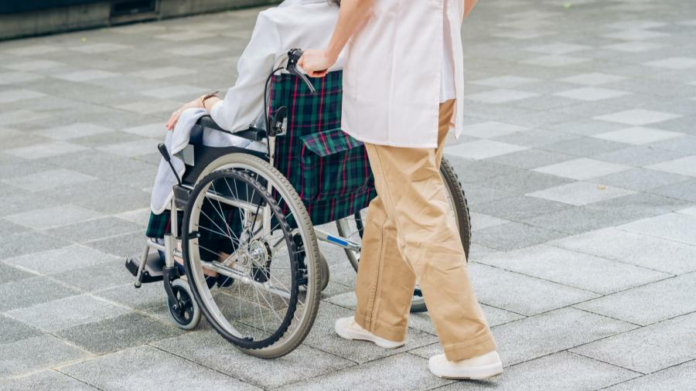The writer is a political journalist and disability advocate
Last month, £150 cost of living payments began trickling into the bank accounts of people who receive disability benefits. These subsidies are conspicuously lower than those made to pensioners or people on the lowest incomes. It is not clear why disabled people like me deserve less help than other disadvantaged groups, especially as we will feel the effects of this crisis particularly acutely.
The squeeze on incomes is being fuelled by soaring energy prices, and disabled people incur much higher costs than most. Those with the most complex conditions have to keep life-sustaining equipment (such as ventilators and hoists) permanently on; switching them off to save money is not an option. In the event of a power cut, disabled people can register for prioritisation when supplies are reconnected — and in some cases for emergency generators — but this service is not well publicised.
Still more disabled people face a double-whammy of susceptibility to the cold: we are often unable to keep ourselves warm by moving around and are more likely to get sick as temperatures fall. But since disabled people tend to spend much more time at home than our non-disabled counterparts, we do not have the option of saving money by working from offices and cafés. All of which means we have the heating on for longer and turned up higher than the average person. Even before the price rise at the beginning of the month, bills could be astronomical.
The lower payments represent inequality piled upon inequality. Disabled people are already much more likely to live in poverty, whether because we are less likely to be in work, or because of the extra costs we bear in daily life. In 2019, before the inflation crisis, the charity Scope found these extra costs amounted to £583 a month on average, rising to more than £1,000 a month for one in five disabled people. Things have only got worse as costs increased at the same time that a deadly pandemic forced many of the clinically vulnerable people to give up their jobs to stay safe.
Imagine the terror felt by many disabled people amid the continuing uncertainty about whether the benefits we rely on will be uprated in line with inflation. We do not know whether the next prime minister will go as far as imposing a real-terms cut. This would be — or rather, ought to be — unconscionable; it would push those already struggling the most further into a financial black hole. People with no options left would turn off their heating. They would get sick. And some would die.
So how has this become a decision the government is willing to contemplate (even though a new regime in Downing Street could force a rethink)? And how is it that those most in need of help have received the lowest cost of living payments, with little pushback from Labour?
These decisions barely register because they have become a commonplace cruelty. A decade of austerity hit disabled people the hardest (look at the case of Errol Graham, who had mental health issues and starved to death in 2018 after his disability benefits were cut). During the pandemic, reckless or flawed decisions on lockdown, shielding and vaccine priority meant disabled people died in much higher numbers than others. We make up 20 per cent of the UK population but represented 60 per cent of Covid-19 deaths. These are horrifying figures, and yet no one has been held to account. Why would a few (or even many) more deaths of disabled people from poverty and the cold be any different to the tens of thousands who died during the pandemic?
There are easy ways to keep disabled people safe this winter. Increase the cost of living payments to reflect the higher energy costs disabled people face. Better still, lower our energy bills. And, crucially, increase benefits at least in line with inflation. Because if nothing is done, Truss’s legacy will be just the same as her predecessor’s: disabled people being sacrificed to poor decision-making.






